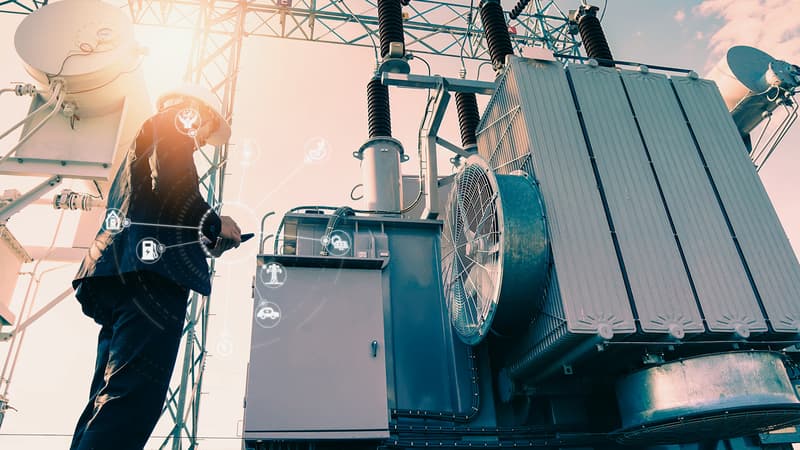France began its deindustrialization in the 1970s like most developed countries. In the early 2000s, it accelerated the destruction of its industrial fabric.
If for a long time relatively few politicians and researchers addressed the issue head-on, it came back to the fore as of the 2010s. “750,000 industrial jobs have been lost in 10 years […] French industry is reaching a critical threshold, beyond which it risks de-structuring,” warned senior official Louis Gallois in 2012 at the Pact for the competitiveness of French industry.
At that time, therefore, minds again seized upon the problem; a few years later, France halted its deindustrialization process.
Today, the industry weighs 13.5% of French GDP and directly employs more than 3 million people, according to figures from France Industrie. Have you found the cure?
The awakening of the French factories
According to Bruno Le Maire, the reversal of the curve would be due exclusively to the policies carried out under the mandates of Emmanuel Macron, which include, among other things, tax cuts to improve the competitiveness of companies.
“The results are there, still fragile, still modest […] they are not yet visible to all our compatriots but they are there and they are promising”, said the Finance Minister during the presentation of his ‘green industry’ bill earlier this month.
However, the first signs of reindustrialization do not seem to have waited for the installation of the president in office.
“Since 2016/2017, there were weak, tangible but modest signs” that were going in this direction,” explains François Bost, professor of economic and industrial geography at the University of Reims Champagne-Ardenne. This first manifested itself through employment, he says.
the covid effect
A few years later, in 2020, the Covid pandemic hit France and the world. From lockdowns to restrictions, countries are shutting down, casting a harsh light on interstate trade dependencies, the result of globalization: supply chains are disrupted, France is plagued by shortages… Under threat, the term sovereignty is back in fashion.
An important point for him who believes that there has been a “deindustrialization of minds” for decades and that the mentality is changing.
A government that takes matters into its own hands, positive signs and an evolving mentality, what is missing from the resurrection of French industry?
Obstacles to reindustrialization
Several decades of deindustrialization leave lasting marks on the territory but also among the people. Thus, today, manufacturers cannot contract.
By the end of 2022, almost two-thirds of companies in the manufacturing sector were facing recruitment difficulties, according to INSEE data. A percentage that has never been so high for several decades.
The lack of available labor is particularly related to skills shortages.
“We have good engineering schools but we need more technicians […] National Education must realize that it has a duty to focus on the sectors that need it most,” said Eric Trappier, president of the Metallurgical Industries and Trades Union and CEO of Dassault Aviation, during a meeting with the economics association and finance. journalists in 2022.
This is a “big social problem” for François Bost that also poses other challenges: to relocate more factories, you need to make sure there is enough land available but also get rid of the paperwork that lengthens the process. “This reindustrialization is very real,” he says, before adding, “but now the question of its realization arises.”
It will last?
“The industry is facing extremely unfavorable economic conditions,” he explains. There are energy prices in particular, which penalize manufacturers, but there is also a pitfall of a completely different nature: “we are ill-equipped for this debate, we are not looking at the correct numbers”.
The indices – number of jobs, industry’s share of GDP, etc. – that are used today to measure industrial dynamism in France do not “show everything,” he says. A factory today does not need to employ as many people as a factory”. of yesterday and the manufacturing sector -often used as a reference when talking about industry- does not include all productive companies.’Airbus is considered an industrialist while Dassault is not in the public data although the latter has “all the attributes of an industry”. ”
Source: BFM TV


